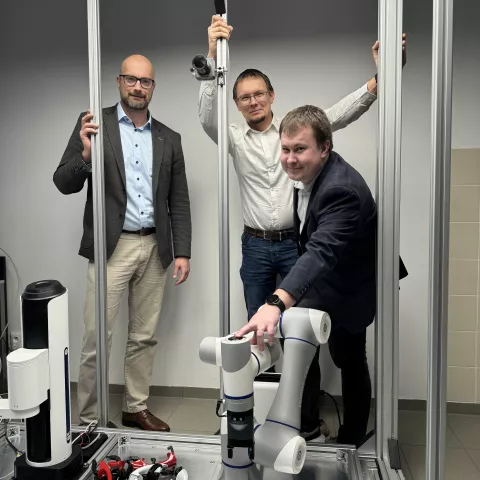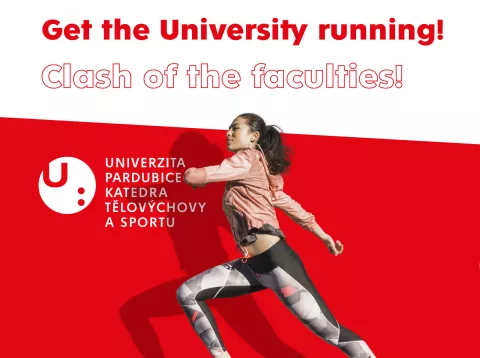


University of Pardubice receives the HR Award
The University of Pardubice has received the prestigious HR Award. It has thus joined the major educational and scientific institutions whose priority is employee care. The HR Award certificate makes the University more attractive when addressing researchers from abroad and obtaining significant grants to support research. "The award increases the prestige of our university and its attractiveness for researchers from around the world. It is proof that at the University of Pardubice we are creating conditions for better career growth in the field of research and development," says pro...
Visit of Ms Jennifer Bachus, US Embassy Chargé d'Affairs
We would like to inform you that on Monday, 25 October 2021, Ms Jennifer Bachus, Chargé d´Affairs of the US Embassy in the Czech Republic, will pay a visit to the University of Pardubice. Ms Bachus will meet the Rector of the University, Professor Jiří Málek to discuss possible opportunities for cooperation in the field of research and development. Cooperation with the USA is very important for the University. Our researchers participate in foreign research projects, in worldwide conferences and cooperate in joint publications. Chargé d´Affairs, Ms. Jennifer Bachus, and the Re...
World’s First Positively Charged Boron Clusters
Chemists from the University of Pardubice and their colleagues from the Academy of Sciences have succeeded in preparing positively charged carboranes. These compounds of boron, hydrogen and carbon have never been obtained in this form before. Their formation defies the standard rules of chemistry. The compounds have unique properties that scientists will investigate. In the future, they might help treat malignant tumours or become the basis for entirely new materials. The research was carried out by the team of Prof. Aleš Růžička from the Faculty of Chemical Technology in collaborati...
Students and Staff Run a Total of 21,330 km
Half the circumference of the Earth or nine times along the Czech border; that is the total distance covered by the students, academics and employees of the University of Pardubice in a single month. They were motivated by the Let’s Get the Uni Running call announced on April 1st by the Department of Physical Education and Sports, University of Pardubice, during long-term online teaching and pandemic restrictions. The contest involved students of all seven faculties, who covered more than 15,500 km out of 21,330 km. The most kilometres were run by a team of students and staff from t...
Testing for Disease through Taste Impairment
Researchers from the University of Pardubice have developed an unusual method that can also be used for self-testing for the coronavirus. The symptoms of some diseases, including COVID-19, include a complete or partial loss of smell and taste. A self-test linked to a mobile app could detect the disease at an early stage at the onset of taste impairment when other symptoms are absent. “The senses of smell and taste interact very closely. Patients with impaired smell usually suffer from mild taste impairment. After COVID-19, some patients may suffer from the loss of smell and taste for...

